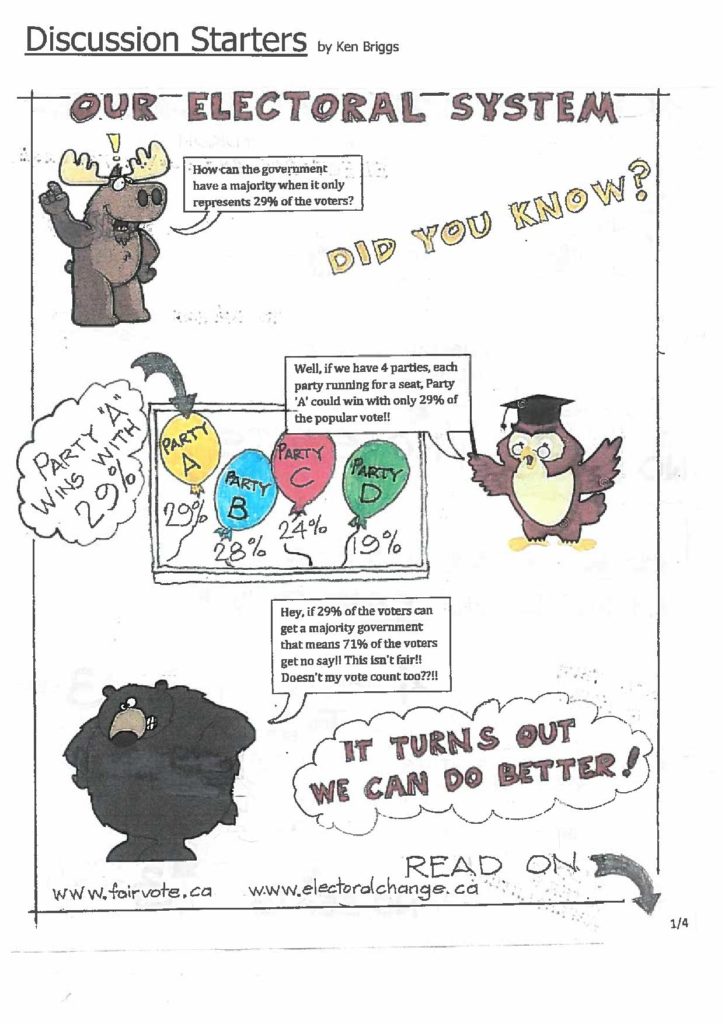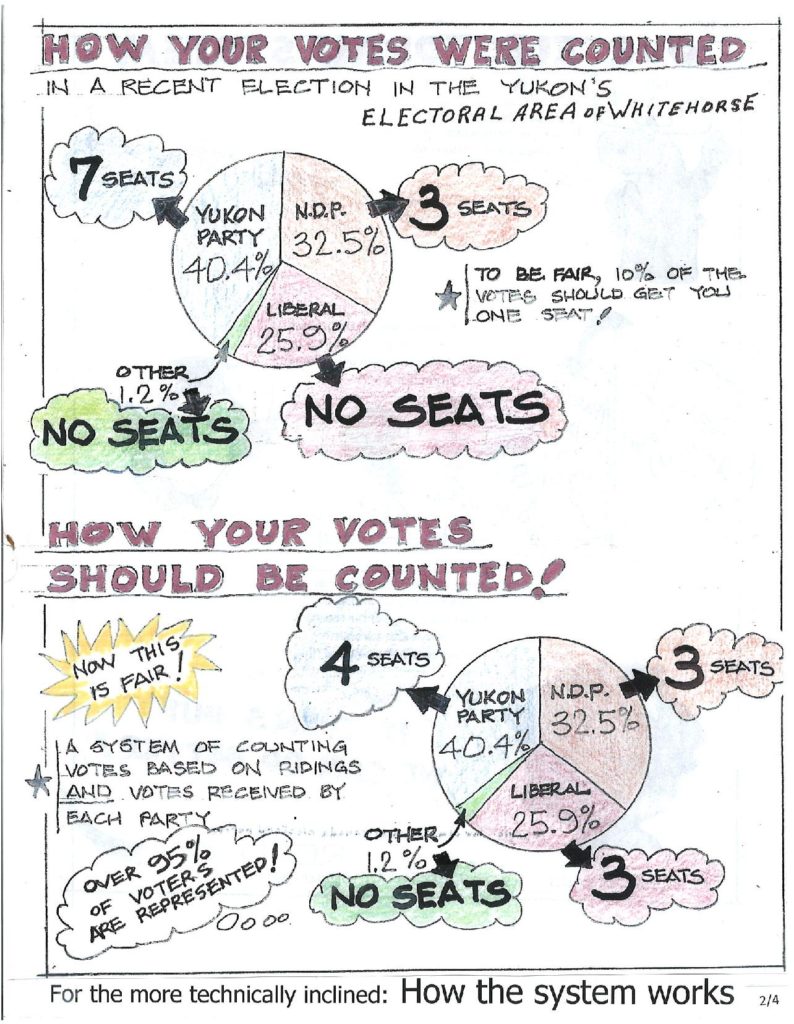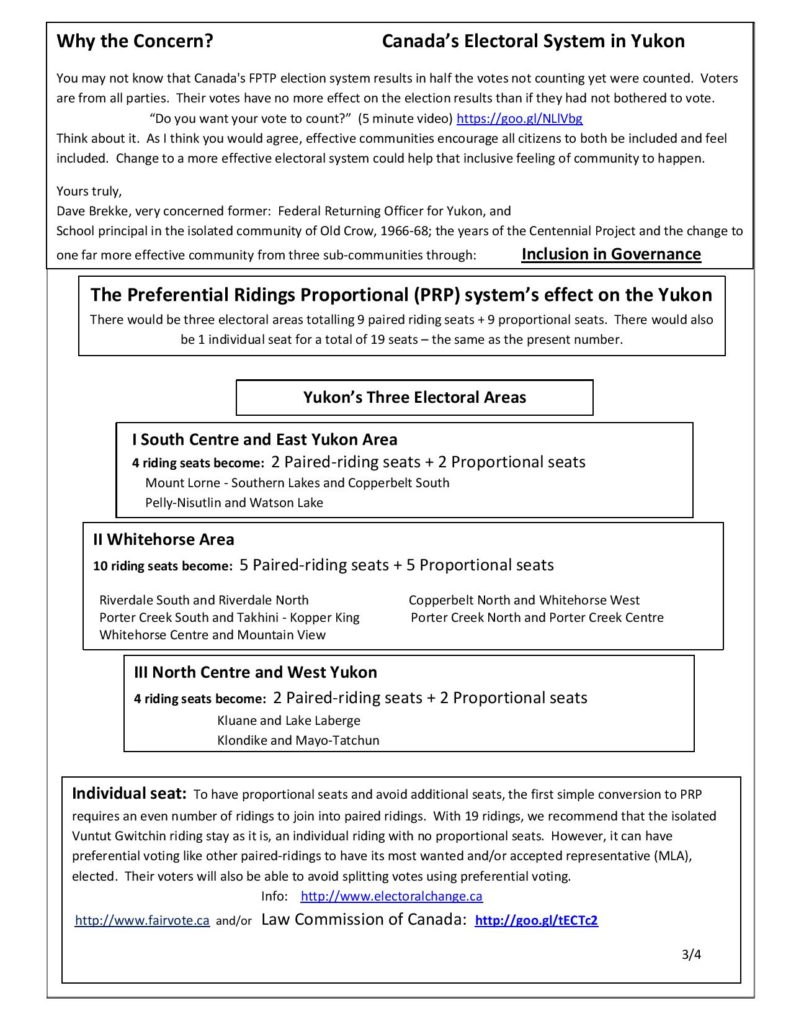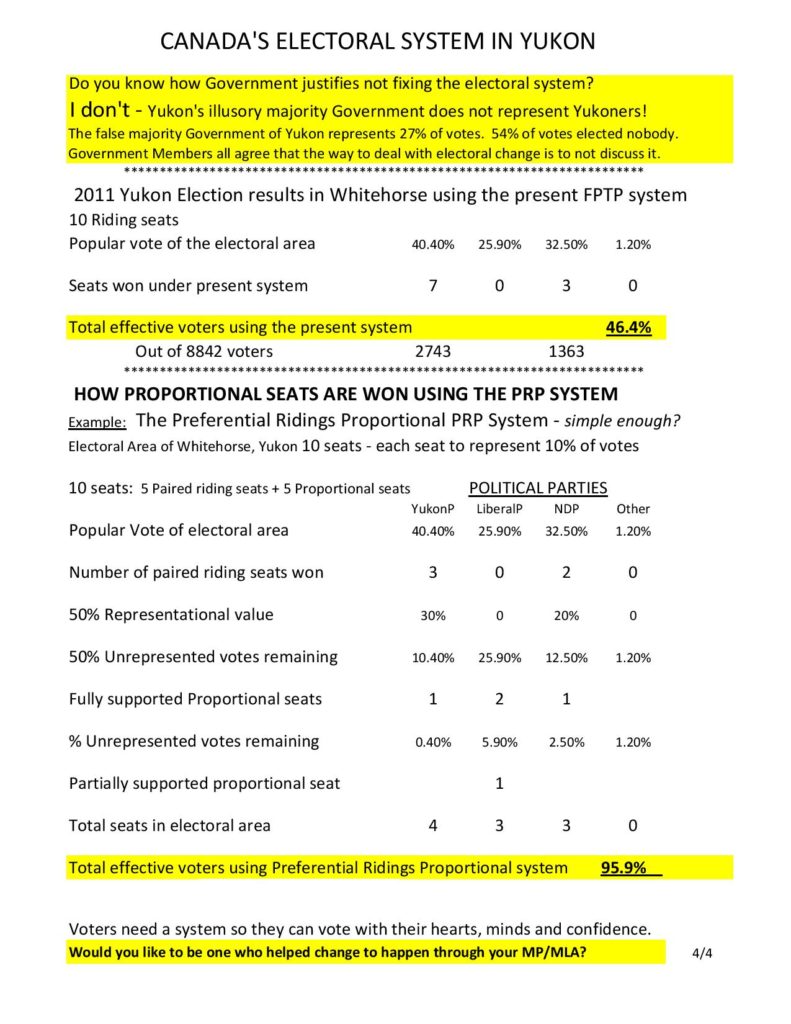It has been a pleasure to be able to attend Hon. Monsef’s, Minister of Democratic Institutions, and Hon. Bagnell’s, Yukon’s M.P., public meetings on the past two evenings. A couple copies of the attached four two-sided handouts were distributed to the tables on the first evening, and I think that everyone read at least one and hopefully commented on it.
Though a growing number of Canadians are aware and concerned, many are not yet aware of the importance of improving Canada’s voting system. Just yesterday I was talking with a former student who excitedly described how he knew his vote counted in the last territorial election. He said he and two friends went together to vote, and their candidate won her seat by 3 votes. They had been encouraged to vote differently by friends, but voted the way they thought was best. That would feel good!
Until I heard some ways that our electoral system could be improved in 2005 while serving on a committee to give grass roots feedback on proposals to increase voter turnout, I thought Canada must have one of the best voting systems. “What could be fairer than the candidate with the most votes winning the seat?”, was my thinking at that time. I had never looked at the total electoral system or other systems. Many Canadians have not yet looked.
It wasn’t at Elections Canada that I learned there were several systems in the world in which all votes counted and others in which candidates were elected preferentially, but after the day’s work. I wondered why the good parts couldn’t be taken from several systems to develop a better system, and with a lot of help and feedback I think we now have it, Preferential Ridings Proportional (PRP). Through inclusion of voters, this new system could help to build rather than divide community as our present system does. We hope it will be helpful to you in starting discussions and in the development of a better, more inclusive system.
Attached are four handouts that might raise awareness and help prompt discussion.
Dave




